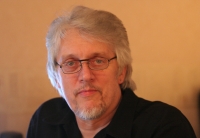Stratford sees an explosion of Young Talent
BBC Radio 2 Young Folk Award 2007
On Saturday 14 October 2006 the Civic Hall in Stratford-upon-Avon will be filled with the sounds of some the best up and coming young talent performing folk, roots and acoustic music as part of the BBC Radio 2 Young Folk Award 2007. BBC Radio 2’s Mike Harding Show has invited 12 of the many soloists, groups and duos that entered this prestigious competition to attend a Semi-final Weekend in Stratford- upon-Avon.
On Saturday evening at 7.30pm the Semi-finalists will take to the stage in a public Audition Concert where the BBC Radio 2 Young Folk Award judges will choose acts to go through to the Final to be held in London on 1 December 2006.
Tickets for the Audition Concert are free and open to everyone but booking early is advised as numbers are limited. To reserve a ticket please contact the Civic Hall on 01789 207100.
These young performers are all aged between 15-20. They will spend the weekend learning new skills from high profile musicians Robert Harbron and Eliza Carthy and be taught the tricks of the music trade, immersing themselves in making music and song.
The finalists will be announced on Mike Harding’s show on Wednesday 18 October, 8-9pm on BBC Radio 2 and the Final can be heard on BBC Radio 2 on Wednesday 6 December, 8-9pm.
The winning act from the Final will record a session to be broadcast on BBC Radio 2’s Mike Harding Show, appear at three top UK festivals - BBC Radio 2 Cambridge Folk Festival, Towersey Village Festival and Fairport’s Cropredy Convention and receive a year’s free membership to the Musicians’ Union.
Previous winners include Tim van Eyken who now has a successful solo career having been a regular member of Waterson:Carthy, exciting Celtic group Uiscedwr who have performed at many of the UK’s festivals and Scottish fiddle player Lauren MacColl, who has recently been seen performing with BBC Radio 2 Horizon Folk Award 2006 winner, Julie Fowlis.
What's significant about this is the drive by the BBC to promote young folk talent and there's no doubt that a generation of impressive young singers and musicians are keeping traditional music alive and accessible to younger audiences. Not just the BBC, but many organisations are working hard to keep the average age of active folk performers lower than 65!
One regular source of newblood performers is the University of Newcastle's folk and traditional music degree whose teaching staff includes Kathryn Tickell, Catriona MacDonald and Alistair Anderson. I often find myself referring to this course when writing up background details of guest artists for the Warwick Folk Festival programme.
Many of these talented youngsters are nurtured almost from birth, sometimes by parents who are themselves professional folk artists. It does raise a nagging doubt in my mind - are these youngsters being fast-tracked into folk stardom?
Many older generation folk (and non-folk) performers will extol the virtues of working the clubs and developing a professional status through experience and the University of Hard Knocks. My impression (but I have no solid evidence for this) is that many of the 'bright young things' do not have a lot of experience of travelling the country and playing the folk clubs - at least the smaller ones - but often step straight into the circuit of larger and concert-style folk venues.
Yes there are many exceptions and yes most young folksingers have some experience of folk clubs and folk sessions. Spiers and Boden come to mind as two young musicians who have hosted excellent sessions and haven't fallen into the trap of presenting themselves as instant superstars. But there is a concern in my own mind that many young performers see their musical careers as pop stars playing the larger festivals and arts centres while traditional folk clubs miss out. They can't afford to book them or have to charge pretty high admission - concert-style prices.
I took part in a Singers Night at a folk club in Coventry recently. The organiser was convinced that the club would be closed by Christmas because of falling audience support and higher fees charged by guests. Most of the people there (and there weren't many of us) were over 40 and the one young singer who turned up sang from a repertoire of old Beatles and Searchers songs (which was good to hear but not what they teach at the Univertsity of Newcastle I suspect!).
It seems to me that while the new industry of young folk talent is keeping folk music alive - i.e. making sure that the old songs and tunes are still being played and heard - it is also a possible factor in the demise of the informal, low-budget, backroom-of-the-pub folk clubs.
Filed under:
BBC Young Folk Award Newcastle University folk degree folk clubs

1 comment:
as a young folkie i completely agree, the system is unfair and mundane.
Post a Comment